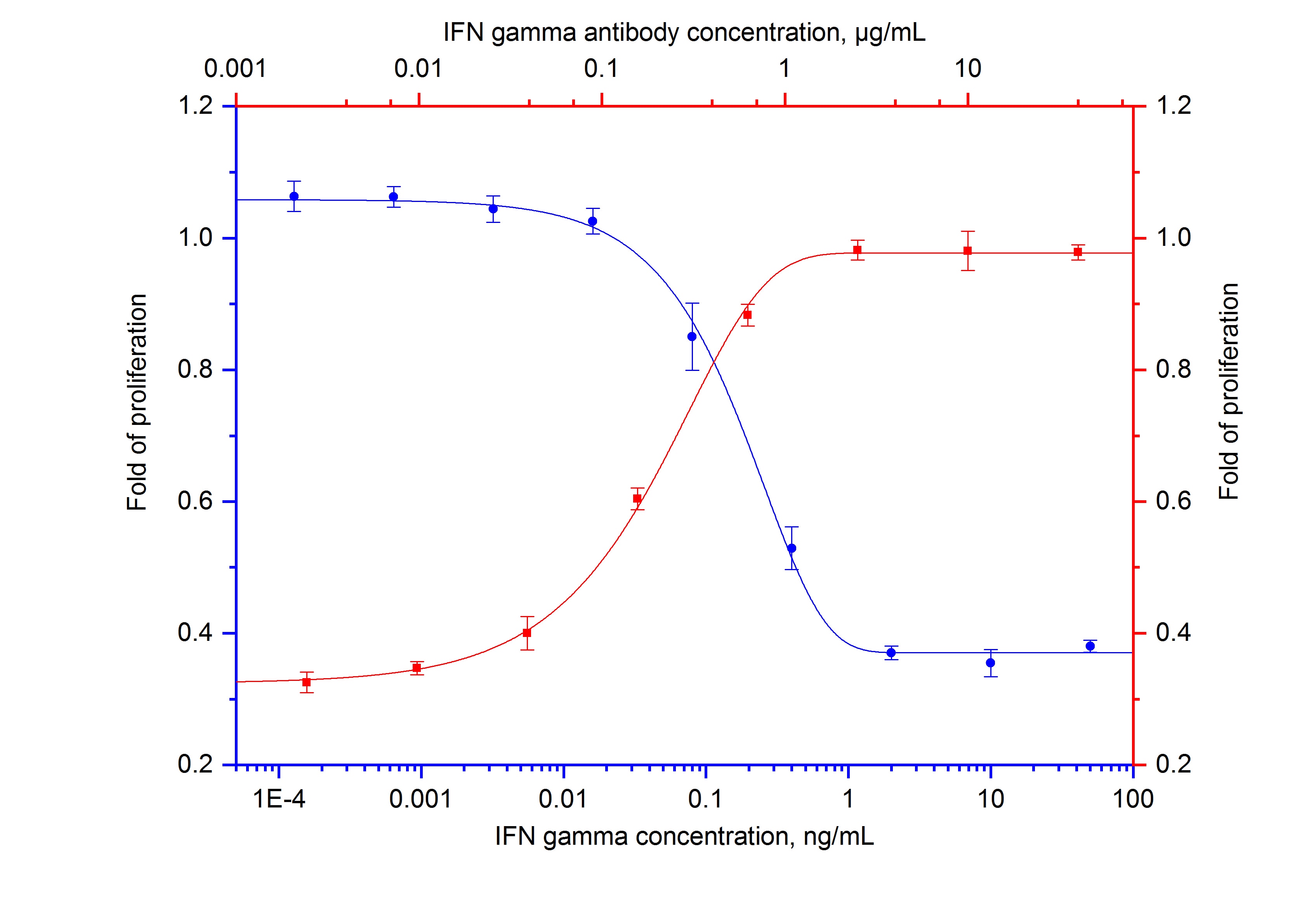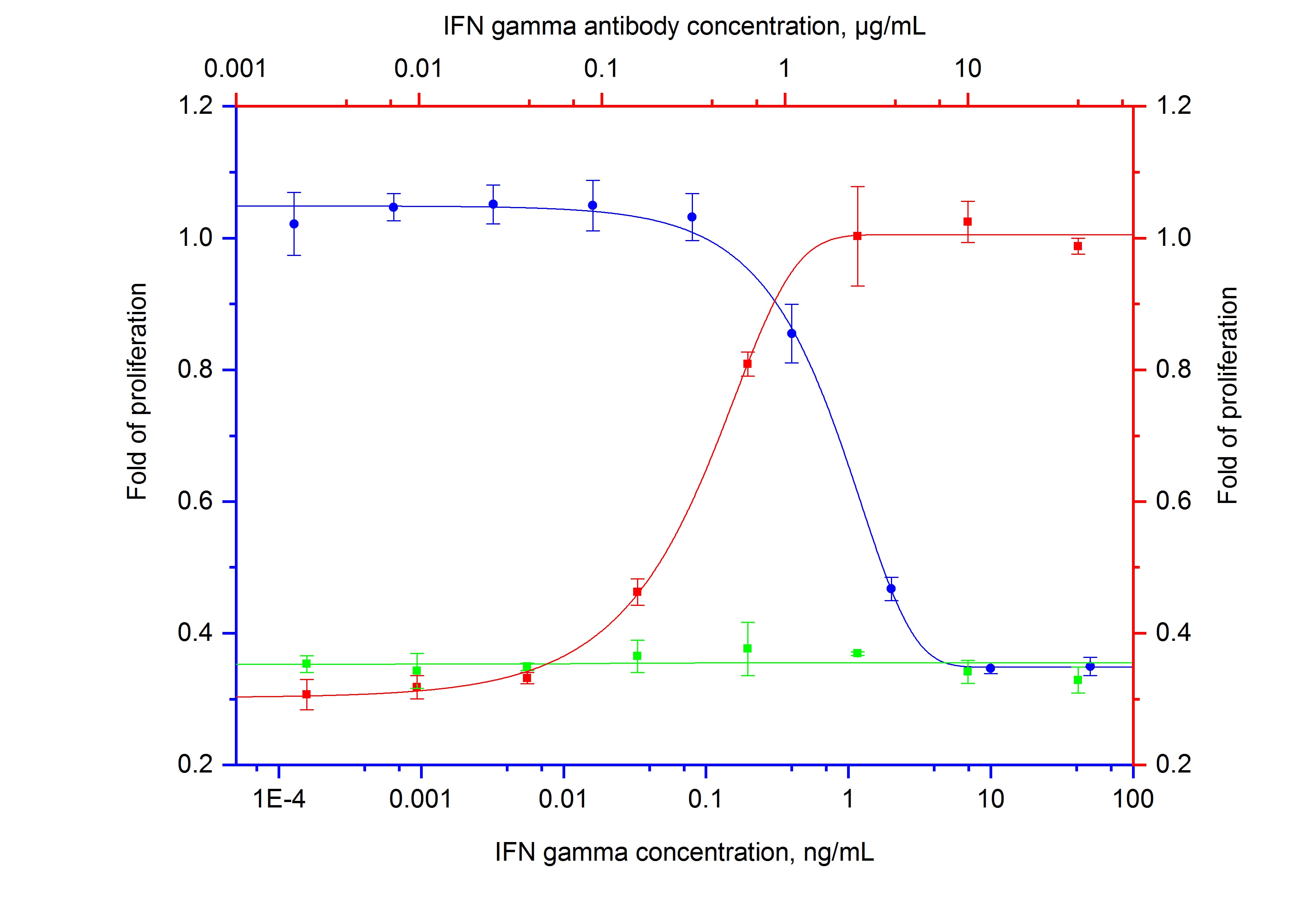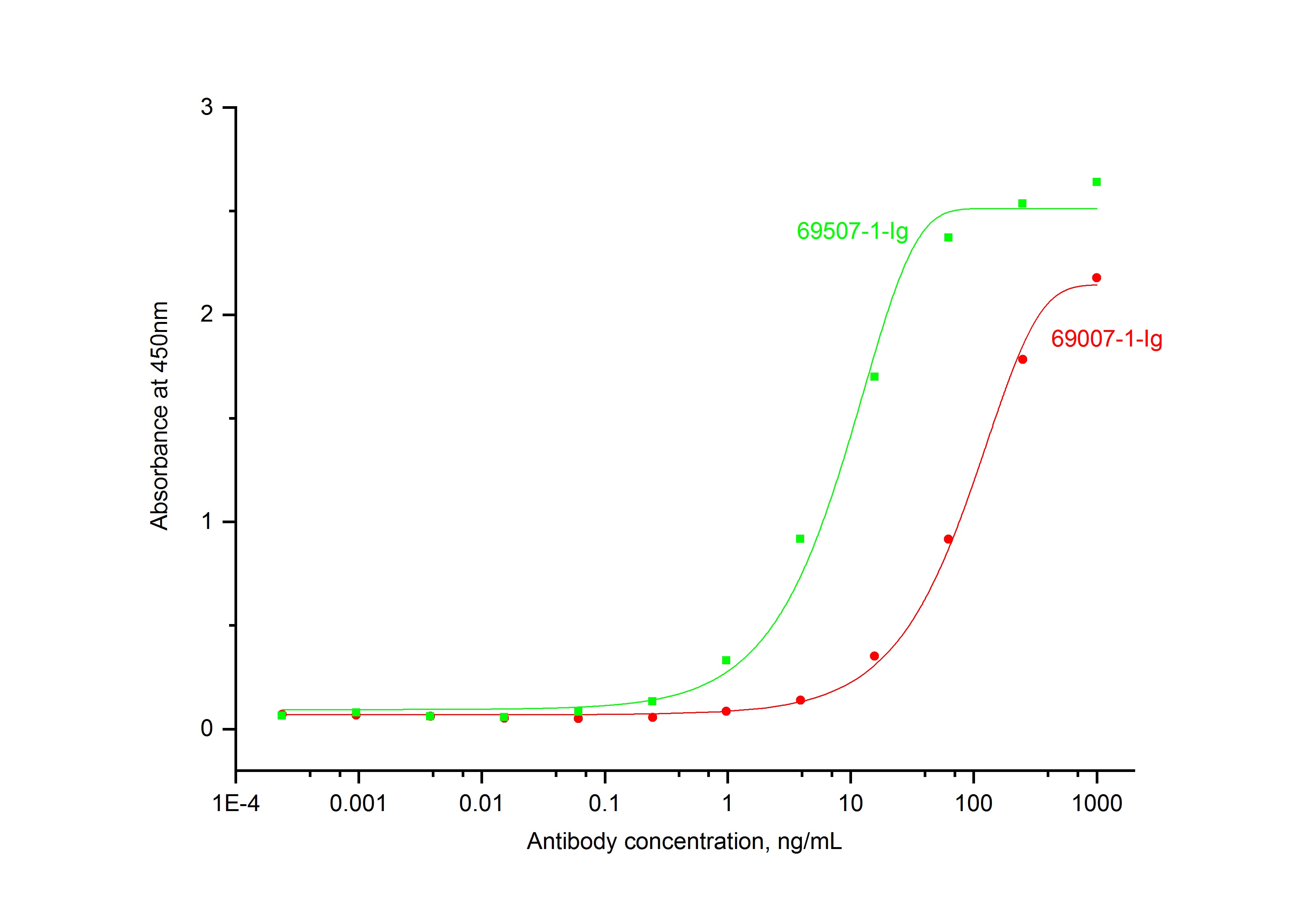Validation Data Gallery
| Neutralization | HT-29 cell |
Product Information
69007-1-Ig targets NeutraKine® IFN-gamma in Neutralization, ELISA, Cell treatment applications and shows reactivity with human samples.
| Tested Reactivity | human |
| Cited Reactivity | human |
| Host / Isotype | Mouse / IgG1 |
| Class | Monoclonal |
| Type | Antibody |
| Immunogen |
Product name: HumanKine® recombinant human IFN gamma protein Source: -derived, Tag: Sequence: 相同性解析による交差性が予測される生物種 |
| Full Name | IFN gamma |
| Gene Symbol | IFNG |
| Gene ID (NCBI) | 3458 |
| ENSEMBL Gene ID | ENSG00000111537 |
| RRID | AB_2882925 |
| Conjugate | Unconjugated |
| Form | |
| Form | Lyophilized Powder |
| Purification Method | Protein G purification |
| UNIPROT ID | P01579 |
| Storage Buffer | Sterile PBS{{ptg:BufferTemp}}7.4 |
| Endotoxin | <0.1 EU/μg |
| Reconstitution | This product was lyophilized from a 0.2 μm filtered solution in PBS. Reconstitute at 1.0 mg/mL in sterile H2O before use. |
| Stability and Storage | Lyophilized antibodies are stable for 1 year from the date of receipt if stored between (-20°C) and (-80°C). Upon reconstitution we recommend that the solution can be stored at (4°C) for short term or at (-20°C) to (-80°C) for long term. Repeated freeze thaw cycles should be avoided with reconstituted products. |
Background Information
Interferon gamma (IFNG) is a soluble cytokine that is the only member of the type II class of interferons. It is secreted by Th1 cells, cytotoxic T cells and NK cells. The cytokine is associated with antiviral, immunoregulatory and anti-tumor properties and is a potent activator of macrophages. It plays crucial roles in pathogen clearance. Aberrant IFNG expression is associated with a number of autoinflammatory and autoimmune diseases. It has been identified in many studies as a biomarker for pleural tuberculosis (TB). Mutations in this gene are associated with aplastic anemia.
This antibody can be used to neutralize the bioactivity of Interferon gamma.
Publications
| Species | Application | Title |
|---|---|---|
Cell Mol Gastroenterol Hepatol Fatty Acid Oxidation Promotes Apoptotic Resistance and Proinflammatory Phenotype of CD4+ Tissue-resident Memory T cells in Crohn's Disease | ||
Nat Commun T-bet+CD8+ T cells govern anti-PD-1 responses in microsatellite-stable gastric cancers |



